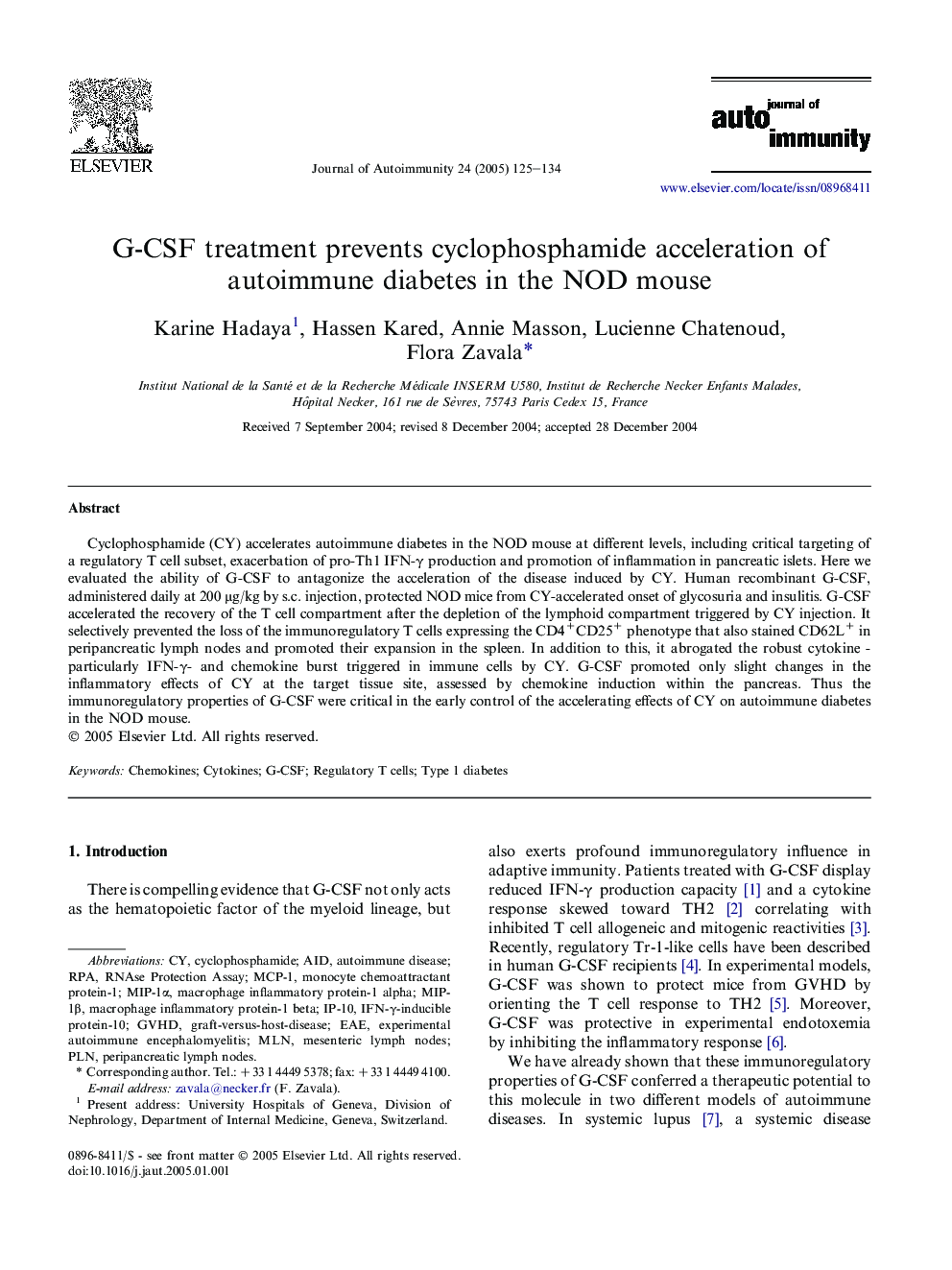| Article ID | Journal | Published Year | Pages | File Type |
|---|---|---|---|---|
| 9267918 | Journal of Autoimmunity | 2005 | 10 Pages |
Abstract
Cyclophosphamide (CY) accelerates autoimmune diabetes in the NOD mouse at different levels, including critical targeting of a regulatory T cell subset, exacerbation of pro-Th1 IFN-γ production and promotion of inflammation in pancreatic islets. Here we evaluated the ability of G-CSF to antagonize the acceleration of the disease induced by CY. Human recombinant G-CSF, administered daily at 200 μg/kg by s.c. injection, protected NOD mice from CY-accelerated onset of glycosuria and insulitis. G-CSF accelerated the recovery of the T cell compartment after the depletion of the lymphoid compartment triggered by CY injection. It selectively prevented the loss of the immunoregulatory T cells expressing the CD4+CD25+ phenotype that also stained CD62L+ in peripancreatic lymph nodes and promoted their expansion in the spleen. In addition to this, it abrogated the robust cytokine -particularly IFN-γ- and chemokine burst triggered in immune cells by CY. G-CSF promoted only slight changes in the inflammatory effects of CY at the target tissue site, assessed by chemokine induction within the pancreas. Thus the immunoregulatory properties of G-CSF were critical in the early control of the accelerating effects of CY on autoimmune diabetes in the NOD mouse.
Keywords
PLNGvHDMIP-1βMLNMIP-1αRPAIP-10EAEMCP-1RNAse protection assayexperimental autoimmune encephalomyelitisGraft-versus-host-diseaseAutoimmune diseaseType 1 diabetesRegulatory T cellsCytokinesCyclophosphamideG-CSFmacrophage inflammatory protein-1 alphamacrophage inflammatory protein-1 betamonocyte chemoattractant protein-1ChemokinesAIDmesenteric lymph nodes
Related Topics
Life Sciences
Immunology and Microbiology
Immunology
Authors
Karine Hadaya, Hassen Kared, Annie Masson, Lucienne Chatenoud, Flora Zavala,
